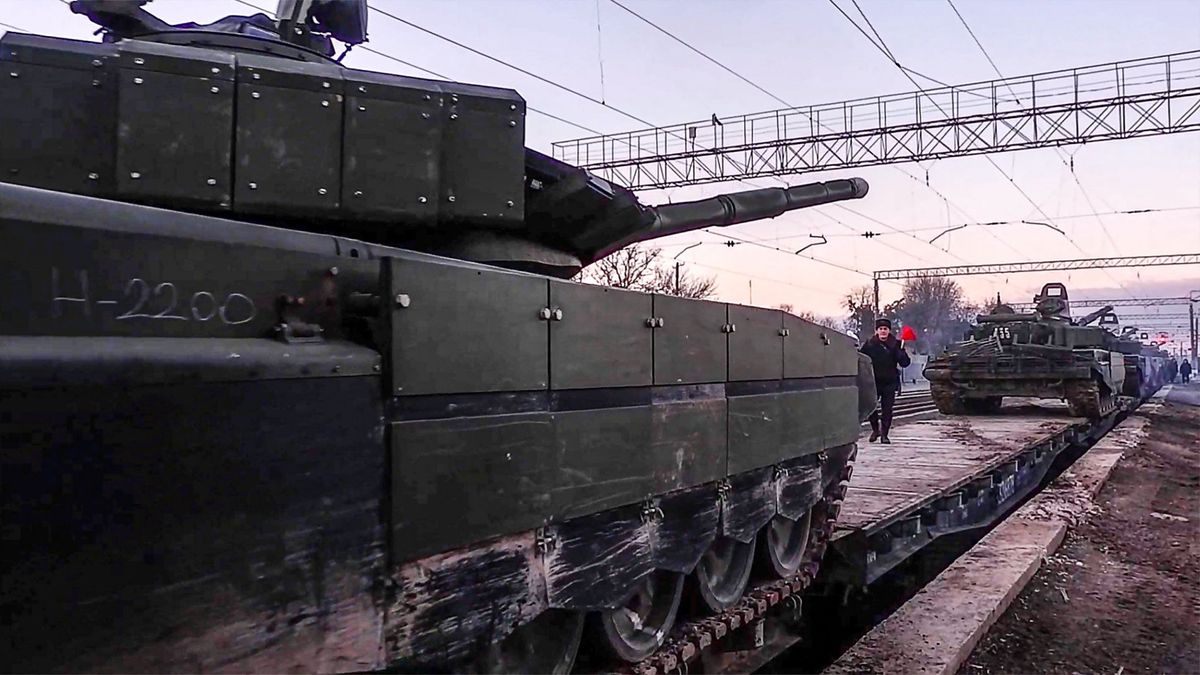The Russian Ministry of Defense announced, shortly before a meeting in Moscow between the German Chancellor Olaf Scholz and the president Vladimir Putin, that part of the 100,000 deployed soldiers returned to their barracks on Tuesday. He spread several images with tanks loaded on a train.
The Russian president confirmed this “partial withdrawal”, but neither the Kremlin nor the army detailed the extent of the withdrawal. At the same time, Russia continues to carry out military maneuvers in BelarusUkraine’s neighbor, which will last until February 20.
The presidents of France, Emmanuel Macron, and of the United States, Joe Biden, described the announcement as “the first encouraging sign”in a telephone conversation, although they insisted on the need to “verify” the start of the withdrawal.
“The fact that we know now that some troops are being withdrawn is a good sign. We hope that others will follow,” Scholz told a news conference alongside Putin.
For the German chancellor, “there are sufficient bases for discussion” with Russia “for things to evolve positively.”
Shortly before, the secretary general of the NATOJens Stoltenberg, had expressed his “cautious optimism”, although he said that he expected a “sign of de-escalation”.
The head of Russian diplomacy, Sergei Lavrovurged his American counterpart, Anthony Blinkento a “pragmatic dialogue”, in a phone call Tuesday.
The withdrawal of some troops was well received in Ukraine, whose Foreign Minister, Dmytro Kuleba, assured that his country, together with its Western allies, had “managed to prevent a new Russian escalation.”
Putin said that “of course” he does not want a war, but reiterated that the expansion of NATO and Ukraine’s aspiration to join the alliance were a threat to Russia.
Putin and Scholz insisted on wanting a process of negotiations on security issues in Europe.
Western countries and Russia have to reach a compromise “without abandoning their principles,” the German chancellor said.
“We are ready to follow the path of negotiation,” Putin replied, although he criticized the rejection of his main demands, to which he did not receive “unfortunately a constructive response.”
These demands are the end of the expansionist policy of the Atlantic Alliance, the commitment not to deploy offensive weapons near Russian borders and the withdrawal of NATO infrastructure from the 1997 borders, before the organization did not receive former members of the soviet bloc.
Westerners have called Russia’s demands unacceptable, but have proposed dialogue on other issues such as arms control.
The announcement of the partial withdrawal occurs in a context of intense diplomatic efforts, and when Washington had warned that the Russian invasion “could happen at any time.”
Dozens of countries have asked their citizens to leave Ukraine, turning a deaf ear to the calls of the Ukrainian president Volodymyr Zelenskywho asked not to panic.
Kremlin spokesman Dmitri Peskov on Tuesday denounced an “absolutely unprecedented Western campaign aimed at provoking tensions” and that the “hysteria has no basis.”
Russia annexed the Crimean peninsula in 2014 and has since backed pro-Russian separatists fighting in eastern Ukraine.
The Russian Parliament asked Putin to recognize the independence of the secessionist territories, an initiative that was immediately condemned by the European Union.
Source: Ambito
David William is a talented author who has made a name for himself in the world of writing. He is a professional author who writes on a wide range of topics, from general interest to opinion news. David is currently working as a writer at 24 hours worlds where he brings his unique perspective and in-depth research to his articles, making them both informative and engaging.




